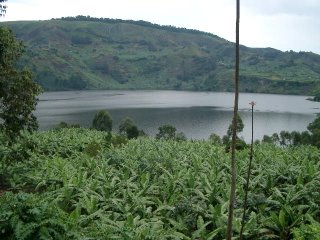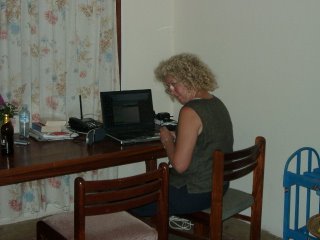


We are both GPs in Penzance, currently working as medical volunteers with VSO in Uganda.














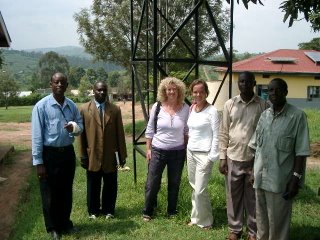
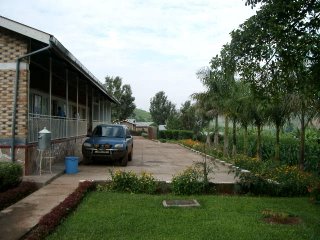
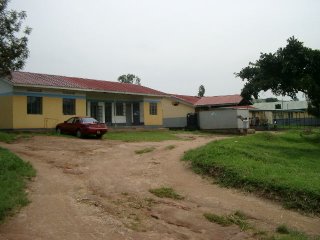
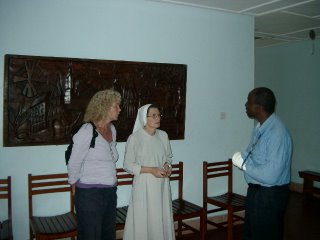



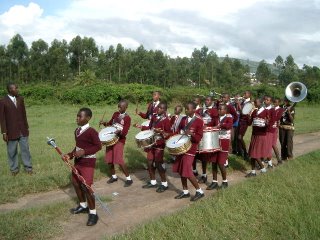
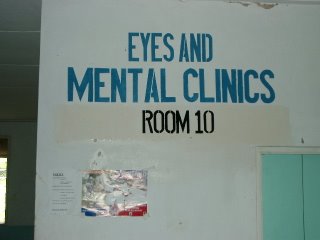
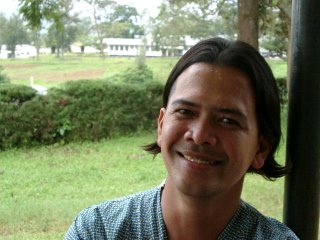
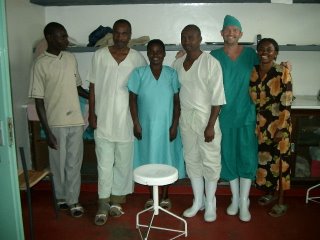
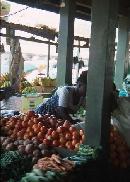


ASSESSMENT OF THE CONTINUING POTENTIAL FOR A DEPARTMENT OF FAMILY MEDICINE AND COMMUNITY PRACTICE AT MBARARA UNIVERSITY OF SCIENCE AND TECHNOLOGY – NOVEMBER 2006
Background
Uganda faces considerable health challenges;
50% of the population do not have access to clean water
Average life expectancy is 45
320 people (mostly children) die every day from malaria
One and a half million people are known to be living with HIV/AIDS
51% of the population are more than 5km from any health facility
1 in 200 women who get pregnant will die from a pregnancy related complication
Infant mortality is 87/1000
There is less than 1 doctor per 10,000 of the population
80% of the population live on less than $1 a day, 96% on less than $2.
The Health Sector Strategic Plan (2000-2005) envisaged a strengthening of Primary Care with most care delivered by Health Centres 1-4 (each level with more sophisticated infrastructure and staffing) rather than by District or Regional Hospitals. This is a sound plan. Part of the development of this strategy requires strengthening the medical presence in Health Centre 4s, to provide comprehensive primary care as well as effective intrapartum care and some emergency surgical services. It was to meet the demand for these Health Centre 4 Medical Officers that the Ministry of Health supported the creation of the two Ugandan Masters Courses in Family Medicine and Community Practice (one at Makerere and one in Mbarara).
There are many significant blocks to the successful delivery of effective Primary Care;
The Health Sector as a whole is under-resourced. Government spending on health is 8% of an already small Gross Domestic Product (GDP). A Save the Children Fund report recommends 12-15% of GDP funding to meet already stated objectives
Undergraduate medical training is still largely specialty hospital focussed, although Makerere has had a more community orientated programme since 2003
Most medical students are from Kampala and prefer to follow careers in Kampala
There are too few medical graduates. The three major teaching hospitals are struggling to fill their own intern posts. Only 33% of rural medical posts are filled
Well funded NGOs offer higher salaries and draw doctors away from the public sector
Collaboration between NGO and Government facilities is poor with many NGO programmes concentrating on the delivery of disease specific services for HIV/AIDS or TB. In practice, there is no concept of comprehensive primary care.
In the public sector the level of commitment among doctors is low. Many public sector doctors spend much of their working time in the private sector to boost their income
Doctors are reluctant to work in remote settings under difficult physical conditions many hours distant from their families
Poor remuneration at medical officer level makes recruitment difficult
Lack of career progression and career opportunities is de-motivating
There are no opportunities for continuing medical education or support
Accommodation and facilities in remote settings are poor
There are often inadequate levels of support staff
Supply of drugs and equipment are outside the control of the individual doctor and are at best sporadic
Lack of infrastructure for performing operations e.g. caesarian sections leads to deskilling of the doctor and thus a total loss of the service at HC4 level
Widespread corruption and theft of supplies further impedes service delivery and damages morale.
Mbarara Placement
We have been recruited by Mbarara University of Science and Technology (MUST) to help consolidate the Department of Family Medicine and Community Practice. This Department currently exists only on paper. Dr Vincent Batwala has managed the Masters Programme in Community Practice and Family Medicine under the auspices of the Community Health Department for several years.
Current issues facing the Programme in Family Medicine:
There is no Clinical Department. This is a vital pre-requisite for teaching postgraduate and undergraduate students in a clinical discipline
There is no office space
There are currently no members of staff in the department and no-one associated with the University has a background in Family Medicine
There is no budget
The curriculum needs to be rewritten to prioritise the learning needs of the students and the Health Sector’s demand for generalist practitioners
At present the students are regarded by their placement departments as an extra pair of hands – the educational component of their attachments is poor
Student assessment is burdensome and not tailored to the practice of Family Medicine
There are currently no students in the first two years of the course.
Minimum requirements for a successful department to be established;
A secure funding stream must be established
At least one and preferably two Ugandan lecturers with a Masters in Family Medicine should be appointed as soon as possible
A follow on VSO volunteer lecturer in Family Medicine should be appointed to begin before September 2007
The department will need an office, a library, IT equipment and furniture
There needs to be a clinical teaching base for students of Family Medicine. In the successful South African model, the Department of Family Medicine runs a generalist triage service for the emergency room and the outpatient department
Lecturers in Family Medicine should have a clinical service commitment of at least 2 days each week
The Course Curriculum needs to be rewritten to reflect the objectives of Comprehensive Primary Care Delivery in Uganda with an emphasis on the management of HIV/AIDS, TB and malaria as well as on the delivery of effective child and maternal health programmes
Traditional courses are unsuitable for this Masters programme. Students come from backgrounds with very different work experiences. The course should be flexible enough to meet individual learning needs. Course assessments should reflect this
A programme of continuing medical education (CME). This requires a commitment to resource and support graduates in order that they can undertake an annual minimum level of CME
Institutions that deliver excellent Primary Care and individuals who practice Primary Care to a high standard need to be identified and supported. Students will be placed at these sites in apprenticeship roles with a comprehensive programme of mentoring and supervision. This system will require funding of the supervisors and supervising institutions
3-5 students need to be recruited into each academic year.
In order to meet these targets the ongoing support and sponsorship of the Faculty of Medicine, MUST and the Ministry of Health (MoH) is essential.
The Faculty of Medicine and MUST will need to provide;
office space
funding for the Lecturer posts and
support for the establishment of a clinical department of Family Medicine.
The MoH will need to commit to the funding of;
Tuition fees
Government salaries whilst students are on the Masters Programme
Travel and subsistence grants for community placements
Special Medical Officer status with a salary enhancement for Masters graduates
Grants for continuing medical education for Level 4 Health Centre Medical Officers
A salary structure which reflects training, experience and length of service.
Jan Power and Mark Russell. November 2006
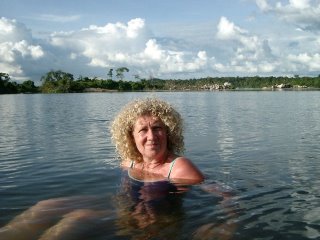


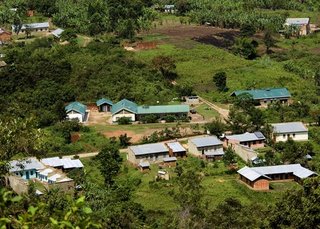
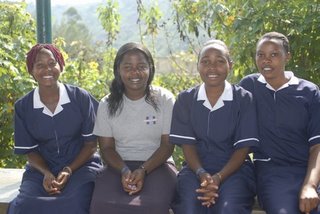
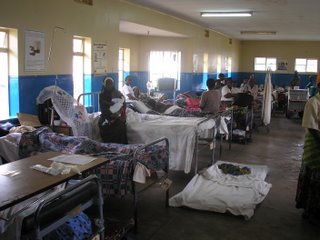
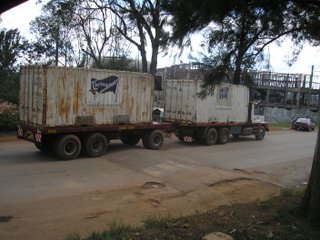
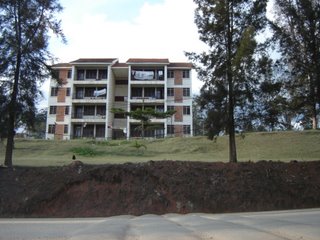
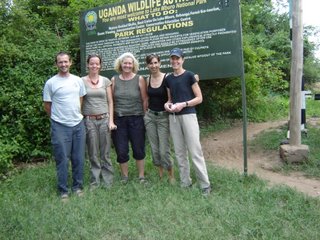



 This week was spent with Robert learning the basics of the Runyankore language. One of the Bantu languages (similar to Swahili) it is a dialect spoken by the Ankore tribe of South west Uganda.
This week was spent with Robert learning the basics of the Runyankore language. One of the Bantu languages (similar to Swahili) it is a dialect spoken by the Ankore tribe of South west Uganda. 

